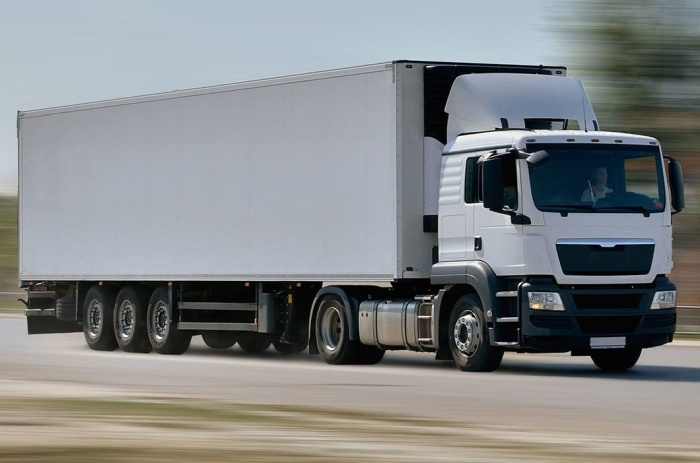When it comes to transporting goods, equipment, or vehicles, trailer transportation services offer an efficient and reliable solution. Whether you’re a business owner looking to move large machinery or an individual transporting a vehicle across the country, understanding the ins and outs of trailer transportation can ensure a smooth experience. In this guide, we’ll walk you through the essential aspects of trailer transportation services, helping you make informed decisions for your transportation needs.
1. What is Trailer Transportation?
Trailer transportation involves the use of specialized trailers to transport goods, vehicles, or equipment from one location to another. These services cater to a wide range of needs, including hauling heavy machinery, transporting vehicles, and moving oversized cargo that cannot be handled by standard vehicles. The trailers are typically attached to trucks or other hauling vehicles, allowing them to carry substantial loads with enhanced stability and security.
2. Types of Trailer Transportation Services
Trailer Transportation services vary depending on the type of cargo being transported. Here are some common types:
- Flatbed Trailer Transportation: Ideal for large and bulky items that require an open space for loading and unloading. Flatbed trailers are commonly used for transporting construction materials, machinery, and vehicles.
- Enclosed Trailer Transportation: Provides protection from the elements, making it suitable for transporting delicate or valuable items that need to be shielded from weather conditions during transit.
- Lowboy Trailer Transportation: Designed for heavy and oversized loads, such as construction equipment, machinery, and industrial materials. Lowboy trailers feature a low deck height, making it easier to load and unload heavy cargo.
- Refrigerated Trailer Transportation: Used for transporting perishable goods that require temperature control. These trailers are equipped with cooling systems to maintain the proper temperature throughout the transportation process.
3. Benefits of Using Trailer Transportation Services
Opting for trailer transportation services offers numerous advantages, making it a popular choice for individuals and businesses alike.
- Versatility: Trailer transportation can accommodate a wide range of cargo types, including vehicles, machinery, construction materials, and even perishable goods. The availability of various trailer types ensures that specific needs can be met with precision.
- Cost-Effective: For transporting large or heavy loads, trailer transportation is often more affordable than using multiple smaller vehicles. Additionally, trailer services can be optimized for long-distance trips, saving time and fuel costs.
- Safety and Security: Specialized trailers are designed with safety in mind, ensuring that your cargo is securely fastened and protected during transit. Many trailer transportation services also offer tracking systems, allowing you to monitor the progress of your shipment.
- Expert Handling: Professional trailer transportation companies employ experienced drivers and staff who are trained in safely loading, unloading, and handling various types of cargo. This expertise reduces the risk of damage to your goods and ensures timely delivery.
4. Choosing the Right Trailer Transportation Company
Selecting the right trailer transportation provider is crucial for ensuring a seamless and efficient experience. Consider the following factors when making your decision:
- Reputation: Research the company’s reputation by reading customer reviews and testimonials. A reliable provider should have a proven track record of on-time deliveries and excellent customer service.
- Licensing and Insurance: Ensure the company is properly licensed and insured to operate in your region. This provides an added layer of protection in case of any accidents or damage during transport.
- Fleet of Trailers: Make sure the company offers the right type of trailer for your specific needs. Some providers specialize in certain types of cargo, while others may offer a broad range of trailer options.
- Pricing: Get quotes from multiple companies to compare pricing. While cost is important, don’t sacrifice quality for a lower price. It’s essential to balance affordability with reliable service.
5. How to Prepare for Trailer Transportation
To ensure the safe and efficient transportation of your goods, proper preparation is key. Here’s how you can prepare for trailer transportation:
- Secure Your Cargo: Make sure that your cargo is properly secured to prevent shifting or damage during transit. If necessary, use additional packing materials or restraints to stabilize the load.
- Clearance and Accessibility: Ensure that the pickup and drop-off locations are accessible for the trailer, especially for larger or specialized vehicles. Confirm that there are no obstacles that could hinder the transportation process.
- Documentation: Prepare all necessary documents, such as permits, registration, and insurance information, for the transportation of your goods. This will help streamline the process and avoid delays.
Conclusion
Trailer transportation services offer an essential and versatile solution for moving heavy, bulky, or sensitive cargo. Whether you’re transporting equipment for your business or moving personal items across the country, choosing the right trailer and provider is crucial for ensuring a safe, timely, and cost-effective delivery. By understanding the different types of trailer transportation, the benefits of using these services, and the factors to consider when selecting a provider, you can make informed decisions that meet your transportation needs with confidence.





